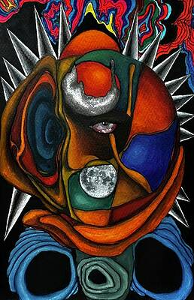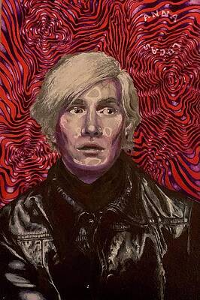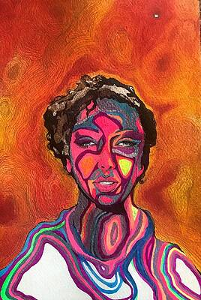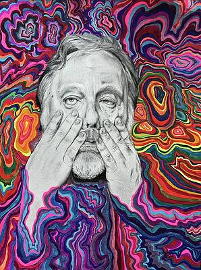Should You Pause or Push Through?
Graduate school is exciting and full of opportunities—but it can also be a lot. Between the endless readings, looming research deadlines, and the pressure to apply for what feels like a million internships (not to mention the sting of inevitable endless rejections), it’s very common to start feeling overwhelmed. And on top of all that, there’s this constant voice telling you to “make the most” of every experience and your time in school. It doesn’t take long before you find yourself in a mental rut, wondering when you last did something just for the joy of it.
Recently, I was listening to one of my favorite podcasts—Anything Goes with Emma Chamberlain (highly recommended by the way—it’s surprisingly grounding, relatable, and mature). She was talking about being in a mental rut and shared some thoughts on how to work through it. Her thoughts and comments really stuck with me. It got me thinking not just about my own experience, but about how common this feeling is among graduate students and young adults in general. It’s definitely not something unique to me—so why don’t we talk about it more?
For me, mental rut has shown up as burnout masked as “just being tired” and a creative paralysis known as “writer’s block.” Sometimes it’s not even that dramatic—it’s just a lingering feeling that I’m going through the motions, not really engaged.
One thing that I learned (and am still learning) is that hobbies aren’t just cute distractions—they’re essential to getting out of that headspace. They give your brain something different to focus on, something that isn't graded or critiqued or bound by your career path and sources of external validation. That freedom is what makes them so powerful.
Why Hobbies Matter
In an environment that prioritizes productivity, taking time for something "unproductive" can feel unrewarding and guilt-inducing. But that’s exactly why it’s important.
Hobbies remind us that we are human beings, emotional creatures. We are more than our to-do lists. Whether it’s painting, running, learning a language, baking, or even building Lego sets (I recently saw a Lego art piece on campus titled Future, Growth, and it made me think about how we construct meaning—both literally and mentally), creative outlets provide structure and release at the same time.
My hobbies include going on long walks, reading sci-fi and cheesy self-help books, going to coffee shops and yapping (of course!), thrifting, reading about politics, journaling, and most rewarding of all, when I have time, my art - it helps me reset and reconnect with myself outside of my external identity and image. It gives me the space I need to breathe and process my emotions and experience in the world.
For many years, I hadn’t worked on anything, and I definitely felt that void. Life started to feel dull and repetitive, like I was just moving through the motions. I felt disconnected from my sense of agency, both in school and in my work, and it was hard to shake the feeling that my ideas didn’t carry much weight or possibility. However, when I create art, I can imbue all those feelings, thoughts, and intentions into something just for myself.
Recently, Rice’s Moody Center for the Arts hosted a student art showcase, and on a whim, I submitted an old piece of mine. I’m so glad I did. It was a much-needed reminder that I still have this creative outlet—and more importantly, that I can do something just for myself, without pressure or expectations. Reconnecting with that part of me has been surprisingly grounding, especially as I navigate a bit of a mental rut. It’s helped me feel more like me again.
Here are a few pieces I’ve created that help me reconnect with my emotions—and sometimes even reflect themes or ideas I’ve been exploring in my classes.

I created this piece shortly after finishing the Hyperion sci-fi series (which I highly recommend—like many of my favorite reads, I found it through Reddit and TikTok). In line with this, I thought of this idea from one reading I had to do in my Continental Philosophy class in undergrad, “The human face is the conduit for the word of God. There is the word of God in the Other, speech without a theme" (Levinas). Emmanuel Levinas’ idea of the “face” is one of his central philosophical concepts. The face of another person is not just a physical appearance—it is a profound ethical encounter that demands a response. That is, our encounter comes with accepting another person’s vulnerability, humanity, and priceless worth. It is in this encounter that ethics precedes knowledge. In other words, the face is not reducible to an object that can be fully grasped or known; it resists that kind of comprehension.
These themes also resonate throughout Hyperion, particularly through its references to the poetry of John Keats. The sharp points and celestial bodies in the piece reflect mental images that emerged as I read—visual impressions inspired by the characters’ inner worlds and the rich, atmospheric settings described in the story.

This piece was my attempt at a trippy take on Andy Warhol (or at least, to the best of my ability). I created it during a particularly stressful period, when I felt overwhelmed and mentally stretched thin by what seemed like nonstop work. I wanted to capture that tension—the feeling of wanting to unravel, to let go, but instead being caught in a kind of suspended, strung-out state.

This one I titled “Moge das Gerede uns zur Holle verdammen” and if I recall correctly, it was shortly after reading some Heidegger and reflecting on his idea of “chatter” (das Gerede). The chatter is in reference to the way we often talk in superficial ways—talk that is social without being authentic and intentional. The “chatter” can mean a lot of things for different people. In academia, it can be repeatedly referencing scholarly phrases, citing thinkers from elite universities, or using policy jargon because it sounds authoritative—even if you haven’t fully internalized what it means for you. It is also much like the ancient greek sophists, who were skilled rhetoricians who taught the art of persuasion without concern for whether what they were saying was true; Plato famously criticized sophists for using language to obscure reality rather than reveal it.

This work was the one that I submitted to Moody! It is a testament to the weird assumptions (often subconscious) that people hold. They are not really spoken into existence but they control much of our perception. The man pictured is the pop philosopher academic, Slavoj Žižek.
Ultimately, I am writing this post in the hopes that anyone navigating a mental rut—especially in the high-pressure environment of grad school—might find a bit of encouragement here. Reengaging with hobbies, especially ones we’ve set aside for years, can be a real turning point. For me, reconnecting with art wasn’t just a creative outlet—it was a reminder that I have the agency to do things just for myself, outside of grades, deadlines, or resumes. I hope this serves as a real-life example of how something as simple as picking up a personal hobby again can bring clarity, confidence, and a sense of purpose when things start to feel heavy or out of balance.
About the author:
Anna Lucas is a Master of Global Affairs candidate at Rice University, with interests in international law, outer space, and emerging technologies. She got her B.Sc. in Biochemistry and Philosophy from Baylor University in Waco, Texas. She will continue her studies at NYU Law in Fall 2025, pursuing a career in international law. Read more.
Further Reading:
Leveraging a Professional Master's for a JD
What to Expect When Moving to Houston
Day Trip from Rice: Immerse Yourself in Texas History

